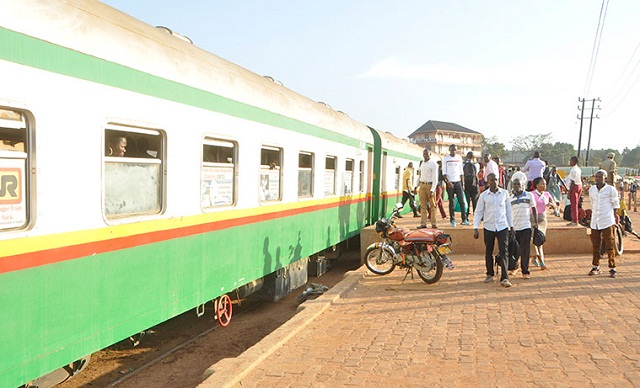
How we lost our collective identity through the glorification of money and what can be done about it
THE LAST WORD | Andrew M. Mwenda | I argued in this column last week that the neoliberal attack on the state in Uganda eroded public ethics in public service. Some readers feel I did not elaborate this enough. Neoliberalism holds that human beings are inherently greedy and selfish, and this is not a bad thing. In fact, neoliberals argue, individual greed and selfishness is a virtue that produces economic prosperity. Every individual should pursue that which gives them the best financial advantage. It is through this cut-throat competition that the interests of society are served by the “invisible hand of the market.”
I criticise neoliberalism and President Yoweri Museveni’s embrace of it with a lot of humility. This is because I was one of its key advocates in the 1990s. Neoliberal reforms such as privatisation, liberalisation and deregulation were justified arguing that the state is inherently corrupt and incompetent. To rescue the situation, you did NOT need to hire competent managers and hold them accountable. The solution was the sell the state enterprise to a private company, liberalise the sector and remove government regulations. This, it was argued, would “unleash markets” and economic prosperity.
So powerful and elegant was this argument, most of us bought into it. Why? The state in Uganda had atrophied, its institutional integrity compromised. Public enterprises had been run down and were making heavy losses. In fact, public sector losses were $500 million higher than total government revenue. So public sector subsidies to prop these state enterprises were eating up nearly half the national budget of a state that was relying on international donors for funds. Therefore, the case for privatisation, liberalisation and deregulation made a lot of sense to many Ugandans.
I remember you could apply for a telephone line from the state owned and run Uganda Posts and Telecommunications Corporation, and it would take you two years to get it even after you had paid a bribe. The same applied to Uganda Electricity Board when one applied to connect their home or business to electricity. When private telecom companies were given licenses, it would take someone a few minutes (and I really mean minutes) to get a telephone line. Whenever and wherever the private sector was given a state enterprise, both the quality and volume of services grew by leaps and bounds.
Now, nowhere is propaganda more effective (and destructive) than when it uses (and abuses) actual truths. Neoliberal reform was clearly working. Neoliberalism was justified and legitimised by the state of our public enterprises and by the results of privatisation and liberalisation. By September1999 before I left for the United Kingdom to study for my master’s at the University of London’s School of Oriental and African Studies, I was toying with the idea of privatising national revenue collection and national defense. My extreme neoliberal views earned me that nickname “Mr. Neoliberal” from my fellow students and caused me considerable conflict with my lectures whom I accused of socialist sympathies.
In fact, my neoliberal views had not just been baked by the experience of state failure in Uganda. They had their roots in my dad, who was an admirer of Margret Thatcher and Ronald Reagan and his teachings. When I finished high school and passed well, my dad bought me a gift in form of a book by Frederick Von Hayek, The Road to Serfdom. When I read it, the scales fell from my eyes. Then I read Milton Freidman, Thomas Sowell, Anne Kruger and every other neoliberal thinker whose works I could lay my fingers on.
Thus, even today I find it hard to walk away from many of my neoliberal convictions. But I can also see how the demonisation of the state led to a self-fulfilling prophesy. For instance, the liberalisation of education has led to a massive boom in education provided by the private sector. But it has led to the near collapse of government schools that were once the pillars of excellence. In their competition for rich students, private schools have made passing exams via cramming and cheating the basis of education.
Uganda had a significant water transport infrastructure, railways and airlines that were run by the state. These worked fairly well in spite of the economic and institutional atrophy that had taken place in the country. Even in the worst days of the 1980s amidst civil war and near collapse of the state, one could travel by train from Kasese to Kampala to Tororo. There were daily Uganda Airlines flights from Arua, Gulu, Soroti and Kasese to Entebbe. A lot of cargo moved by ship from Kisumu to Port Bell. All these state functions were sold, rail tracks uprooted, ships left to rot at Port Bell and the much-hyped private sector hasn’t filled the gap.
Basically, assets that this country had built using hard-earned savings of Ugandans through the state – railways, powerlines, an airline, banks, bus companies, factories, hotels, resorts, prime real estate, etc. were sold to private agents for a song. The government has NEVER accounted for the money it got from these sales. Yet I think this was the smaller loss. The bigger one was the culture it created – of worshiping money as the basis of life. The other was the destruction of the idea of pursuing collective goals and national solidarity through the agency of the state.
This is why I think the discussion of Museveni as the problem and his removal from power as the solution misses the point. The bigger issue Ugandans must deal with even when Museveni leaves power is the culture that glorifies money and disregards the idea of collective efforts to achieve national goals through citizen solidarity. Voters expect to be paid by candidates in exchange for votes. They want their MPs to steal from Kampala and take resources to their village or district. Even civil servants are expected to grab something from the government and take it to their districts.
Hence there is a huge emptiness in public debate in Uganda. What goes for public debate is either narrow managerial technocratic talk or partisan shouting matches on radio, television and social media. Yet Public debate should focus on issues such as what is the Uganda we want? How do we build and sustain a collective identity and find pride and meaning in the idea of being Ugandan? How do we ensure fairness and justice to all citizens? How do we promote national solidarity and pursue those things that bring us together?
*****

amwenda@ugindependent.co.ug
 The Independent Uganda: You get the Truth we Pay the Price
The Independent Uganda: You get the Truth we Pay the Price




Nice
Yes, nice. If the last two articles are anything to go by, one can confidently posit that Andrew is becoming mature; a real Oldman, and not the fake one he has been claiming to be.
In my opening reaction to your last week’s column I said, “Andrew M9 Live”!
And today’s there’s absolutely no need to belabor much, for you have aptly summed it up in your concluding paragraph, in which you raise the very fundamental questions that every Ugandan who loves this country has been asking over time, except when you seem to put a caveat “..even if M7 leaves power (for whatever reasons)..”!
Therefore, without much ado, for there’s a Chinese proverb which goes like this, “even a journey of a thousand miles starts with the first step”!!
As long as M7 still misrules this country nothing can be done by anybody to bring about much desired positive change that every Ugandan longs.
Otherwise your quick disclaimer about M7 being Uganda’s number one biggest obstacle renders your brilliant argument look just a do-gooder!
I’m interested on it
Liberalisation of State Enterprises was to ‘banish Banyanyas’, who were competent Managers of those Enterprises! The few steals billions, builds rental apartments and swanky hotels, while the poor stays out of reach, and wallow in poverty in a rotten health and education sector, while the neoliberals fly abroad for treatment and send their children to far away schools! Did the neoliberals steal to build factories to offer employment? No! Look how many people loose their lives daily because the competent National carrier UTC, with buses, training and maintenance, that functioned, but now we have cut and shut trucks for Buses!
Hey Mwenda minister Norbert Mao appears to have answers to your concerns raised in the last two paragraphs. Please listen to his address again.